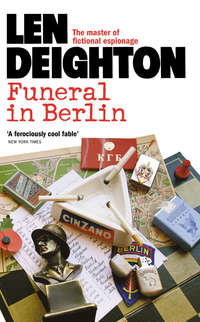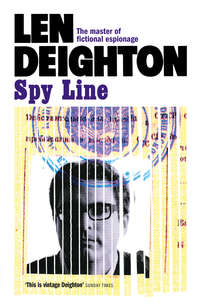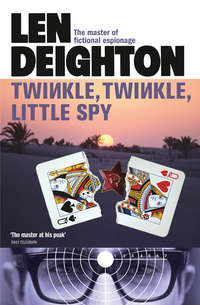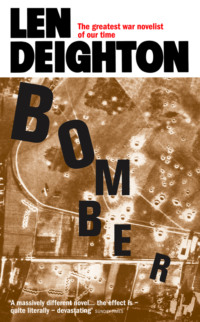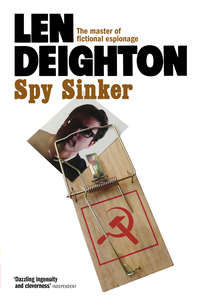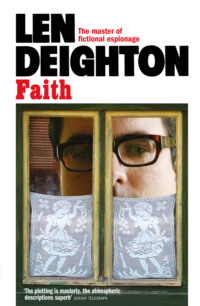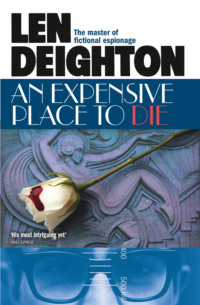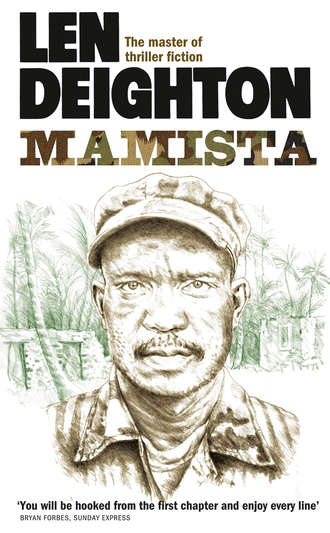
Полная версия
MAMista
‘Designer explosions! And all this time I’ve just been making bangs,’ said Chori.
Paz slapped the safe. ‘Make a big bang under this fat old bastard and all we will do is shift him into the next room with a headache.’ He took the polish tins and arranged the explosive in them: first the Japanese TNP, then the orange-coloured plastic and finally the grey home-made booster. Then he took a knife and started to carve the plastic, cutting a deep cone from it and arranging the charge so that none was wasted.
‘What are you doing?’
‘Relax, Daddy.’
‘Tell me.’
‘I’m going to focus the rays of the explosion. About forty-five degrees is best. I want it real narrow: like a spotlight. Here, hold this.’ To demonstrate he held the tins to the sides of the safe. He moved them until the tins were exactly opposite each other. ‘The explosions will meet in the middle of the safe, like two express trains in a head-on collision. That will devastate anything inside the safe without wasting energy on the steel safe itself.’
‘Will it make a hole?’
‘Two tiny holes; and the frame will be hardly bent.’
‘I’ve never seen anything like that.’
Paz looked at him. ‘The man who showed me how, would have put tiny charges in a line all round, focusing them at the centre. But he was an artist. We’d be up all night trying to do that.’
‘It’s great.’
‘It’s not done yet,’ said Paz modestly, but he glowed with pleasure. This man was a real comrade. From the desk Paz got a handful of wooden pencils and fixed them round a tin, holding them with a strong rubber band. ‘The charge has to stand-off at least the distance of the cone diameter. That gives the charge a chance to get going before it hits the metal of the safe.’
‘How would you like to write down everything you know? An instruction manual. Or make a demonstration video? We’d use it to instruct our men.’
Paz looked at him and, seeing he was serious, said, ‘How would you like one hundred grams of Semtex up your ass?’
Chori laughed grimly. ‘I’ll do this one,’ he said.
‘Okay. I’ll wire the timers.’ Paz took a Mickey Mouse clock and bent the hour-hand backwards and forwards until he tore it off. Then he jammed a brass screw into the soft metal face of the clock. Around the screw he twisted a wire. Then he moved the minute-hand as far counter-clockwise as it would go from the brass screw. He wound up the clock and listened to it ticking.
‘It’s a reliable brand,’ said Chori.
‘It has only to work for forty-five minutes,’ said Paz. He fixed the other clock in the same way and then connected it.
‘Two clocks?’
‘In case one stops.’
‘It’s a waste.’ A soft patter of footsteps sounded in the corridor and Inez put her head round the door. ‘There is a police car stopped outside,’ she said. ‘You’re not going to use a radio?’
‘No,’ said Paz.
‘I’ll go downstairs again. I’ll set off the fire alarm if …’
‘Stay here,’ said Chori. ‘We are nearly finished.’
Paz said nothing. Taking his time he went to look at the way Chori had fixed the stand-off charges to the safe. He prodded them to make sure the sticky tape would hold. Then he connected the caps and twisted the wires around the terminals of the dry batteries. Finally Paz connected the clocks to the charges. He looked up and smiled at Chori. ‘Fingers in the ears, Daddy.’ He looked round. Inez was still in the doorway. He smiled at her; he’d shown her that he was a man who mattered.
Without hurrying the three of them left the minister’s office. Inez returned to the darkened room to resume her watch from the window. The two men started to remove all traces of explosive. They stripped off the coveralls and cotton gloves and stuffed them into the shopping bag. Then they methodically washed their hands and faces: first in kerosene and then in scented soap and water.
Inez returned. She looked at her watch and then at the two men. She could not hide her impatience but was determined not to rush them. When the men were dressed, the three of them went down the main staircase. They walked through the building to the back entrance, to which Chori had a key. Once outside they were in a cobbled yard. There were big bins of rubbish there and Chori took the bag containing the soiled coveralls and stuffed it deep down under some garbage. The police would find it but it would tell them nothing they didn’t already know. It took only five minutes for them to get to the Plaza de Armas and be back at the café again.
‘There is plenty of time,’ said Paz.
Everything looked the same: the strollers and the soldiers and the fashionably dressed people drinking wine and flirting and arguing and whispering of love. The fountains were still sprouting and splashing, to make streams where the mosaics shone underfoot. Only Angel Paz was different: his heart was beating frantically and he could hardly maintain his calm demeanour.
The café music greeted them. The table they’d had was now occupied – all the outdoor tables were crowded – but the trio found a table inside. The less fashionable interior part was more or less empty. The waiter brought them coffee, powerful black portions in tiny cups. Glasses of local brandy came too, accompanied by tiny almond cakes, shaped and coloured to resemble fruit. ‘Twenty-two minutes to go,’ said Chori.
‘This one had better go back with you tonight, Chori,’ said Inez, a movement of her head indicating Paz.
She leaned forward to take one of the little marzipan cakes. Paz could smell her perfume and admired her figure. He could understand that for many men she would be very desirable. She sensed him studying her and looked up as she chewed on the sweet little cake. They all ate them greedily. It was the excitement that made the body crave sugar in that urgent way. ‘The car is late,’ she said to Chori. She stood up in order to see the street. It was crowded now, and even the inside tables were being occupied by flamboyantly dressed revellers.
‘It will be all right,’ he said. ‘He is caught in the traffic.’
They drank brandy and tried to look unconcerned. A group came in and sat at the next table. One of the women waved to Inez, recognizing her despite her wig and dark glasses. The waiter asked if they wanted anything more. ‘No,’ said Chori. The waiter cleared their table and fussed about, to show them that he needed the table.
The curfew had actually increased business in this part of town. Many of the cars parked in the plaza bore special yellow certificates. They were signed by the police authority to give the owners immunity to curfew. Some said the curfew was intended only for Indians, blacks and the poor. Well-dressed people were unlikely to be asked for their papers by the specially chosen army squads that patrolled the town centre.
The car that collected them from the café arrived fifteen minutes late. As they went to the kerb Paz saw the four crop-headed priests who’d been with him on the ship. One of them bowed to him: he nodded.
When the three of them were inside the car they breathed a sigh of relief. The driver was a trusted co-worker. He asked no questions. He drove carefully to attract no attention, and kept to the quiet streets. They encountered no policemen except a single patrolman keeping guard in the quiet side-street where the tourist buses parked for the night.
The traffic lights at the cathedral intersection were red. They stopped. Through the great door Paz could see the chapel and the desiccated remains of the first bishop displayed inside a fly-specked glass case. A thousand candles flickered in the dark nave.
Some worshippers were coming out of the cathedral, passing the old wooden kiosks with their polished brass fittings. From them were sold foreign newspapers and souvenirs and holy relics.
As the traffic lights changed to green Paz heard a muffled thump. It was not loud. He heard it only because he was listening for it. ‘Did you hear that?’ Paz asked proudly.
‘Thunder,’ said Chori. ‘The rains will begin early this year. They say it’s the greenhouse effect.’
2
WASHINGTON, DC. ‘A trap,’ said the President.
The man’s name was buried in a Spanish Guiana file under the arm of John Curl, the US President’s National Security Adviser. In fact he was not a name. He was just an eight-digit computer number with a CIA prefix.
John Curl was on his way to see the President. He had come from the Old Executive Building a few hundred yards from the West Wing. Under his arm he carried a soft leather case with important papers that he’d just collected from Room 208 (sometimes called the Crisis Management Center). John Curl had no formal powers. His role and duties were not mentioned in the 1947 National Security Act which set up post-war US foreign policy offices. Curl was just one of many assistants to the President. As a go-between for the President and the National Security Council, he had coveted ‘walk-in privileges’ that gave him access to the President. That made him one of the most influential men in the land. Lately he had been permitted to give orders on his own signature – ‘for the President: John Curl’. It made him feel very proud to do that.
After dinner with his family, the President had spent two or three hours reading official papers. Then, at about ten-thirty, he liked to ride the elevator down from the residence to see the latest news. One of the NSA staff was always standing by with up-to-date backup material, such as maps, graphics and satellite photos. Curl was there too: only sickness or duty could keep him away. Often in the evening the President was approachable in a way he wasn’t at the 9.30 am security briefing held in a room filled with people.
The West Wing changed character at night. The fluorescent lighting seemed especially hard when unmixed with daylight. The voices that echoed in the corridors were hushed and respectful. The ceremonial rooms and library, the Press rooms and the barber shop were closed and dark. The night-duty offices were quiet except for the intestinal noises made by the computers, and the sound of laser printers periodically rotating the fuser rollers. The only signs of life were made by the night duty staff at the end of the corridor. A secretary could occasionally be seen there using the coffee machine, or exchanging banalities with a guard.
In the corridor leading to the Lincoln sitting-room, Curl was buttonholed by the Air Force aide who asked, ‘Did you read “Air Bus to Battle”, John?’
Curl stopped, sneaking a quick look at his watch as he did so. The Air Force aide was a man of influence. He controlled the planes of the Presidential Flight. When an extra seat on Air Force One was needed, the general knew how to fix it for the ones he favoured.
Curl said, ‘Halfway through.’ The document he referred to was a 100-page report on a new military transport plane demonstrated the previous week. They both knew that ‘halfway through’ meant Curl had not even glanced at it.
‘I just came from the chief,’ said the general. He said it casually, but minutes with the President were added up proudly, like high school credits. He tapped the Air Force promotion lists to show what the President had signed.
‘Is he alone?’
‘Waiting for the eleven o’clock TV news.’
Curl looked again at his watch. It was 10.58 pm. He was already turning away as he said, ‘Thank you, General. Can I tell you how much we all enjoyed Monday?’
All enjoyed Monday was a far cry from how impressed we all were on Monday. But the general smiled. He liked John Curl. He was not one of those peaceniks who were yelling for more, and still more, military cutbacks every time they saw a newspaper picture of happy smiling Russians.
Right now the Air Force needed every sympathetic voice it could get here in the White House. The poll-watchers were shouting for mega-dollars to be switched to education and fighting crime and drugs. They were saying that it was the only way to avoid the President getting severely clobbered when the mid-term elections came. ‘It was a pleasure, John,’ he called after him. ‘The Air Force is hosting one hundred and fifty Senators and guests for the same demonstration on the twenty-first. If you want tickets for anyone …’
‘Great. I’ll be in touch,’ said Curl, turning to wave. Then he smoothed his wrinkled sleeve. The silk-mixture suit, custom-made shirt and manicured hands were part of Curl’s public image. Even when this handsome man was summoned from bed to an emergency conference in the Crisis Management Center he cut the same dashing and impeccable figure.
Curl had already forgotten the general. His mind was on the newscast that the chief was waiting for. The news he was bringing might be made public and that would change the whole picture. Curl worried that he might need more figures, dates and projections but it was too late now.
Curl stopped and took a silk handkerchief from his top pocket. He carefully wiped his brow. More than once he’d heard the President refer slightingly to aides who arrived ‘hot and sweaty’. Curl nodded to the elderly warrant officer outside the sitting-room door. On the floor at his side rested a metal case. (When the staff photographers were around he kept it on his knees.) It held sealed packets signed by the Joint Chiefs. These were the codes that could order a nuclear strike. And the Doomsday Books that, in comic-strip style, illustrated projections in megadeaths for each of the target towns. The Russians, drowning in a sea of economic disaster, were clutching at the straws of capitalist revival. The East European satellite nations were offering their desolate industrial landscapes to any bidder. But anyone with access to the intelligence pouring in to Room 208, from the Gulf, as well as from Africa and the Far East, knew that America’s enemies had not gone out of business. So ‘the bagman’ followed the President everywhere he went.
Curl knocked at the door softly but waited only a moment before entering. His chief was sitting in his favoured wing armchair, reading from a fat tome and sipping at his favourite evening drink: cognac and ginger.
Curl stood there a moment reflecting upon the baffling way in which this room seemed to change when the President was in it. It was bigger, lighter and more imposing when the chief was here. He’d stood here alone sometimes and marvelled at the difference.
The President made a movement of his hand to acknowledge Curl’s presence. The public saw only the President a make-up team and TV producer created for public display. They would have been shocked to see this wizened little man in his spotted bow tie, baggy slacks, hand-knitted sweater and red velvet slippers. This was the way the President liked to dress when the White House staff photographers were not around, but it was verboten at all other times. The bow tie was ‘arty’, the slippers ‘faggy’, the sweater ‘too homespun’ and US Presidents didn’t drink fancy foreign booze. Most important, US Presidents looked young and fit. They didn’t wear granny glasses and sit hunched over books: they rode and roped and piloted their own choppers. It wasn’t always easy to reconcile this carefully conjured outdoor figure with the emphasis the Administration was now putting upon formal education and the need for scientists and scholars, but votes must always come first.
The President had aged greatly in two years of office, aged by a decade. He continued to read and didn’t look up as Curl entered. ‘Fix yourself a drink, John. The news is coming now.’
Curl didn’t fix himself a drink. He wasn’t fond of alcohol and liked to present a picture of abstemiousness when with the President. Curl stood behind the President looking at the TV but also noticing the small bald patch on the crown of the chief’s head. Curl envied him that: his own baldness was reaching up from his temples to a little promontory of hair that would soon become an island and disappear altogether. From the front the President showed no hair loss at all.
Still thinking about this, Curl seated himself demurely on the sofa with his leather case beside him. He arranged a handful of small pink prompt cards in sequence, shuffling them like a professional gambler with a deck of marked cards. Upon each one a topic of discussion was typed in large orator type. ‘Spanish Guiana – guerrilla contact’ read the topmost card. Curl kept them in his hand, holding them out of sight like a conjuror.
The Pizza Hut ad ended. The President closed his book. This newscaster was a man they both knew, a man to whom they both owed a favour or two. The first item was edited coverage of the protest march in Los Angeles. The subsequent demonstration had continued through the early evening. The tone of the commentary was glum: ‘An LAPD spokesman estimated close on one hundred thousand angry demonstrators packed into MacArthur Park today … Young and old, men and women: protesting the announced cutbacks in the aerospace industry that could make a quarter of a million workers jobless by Christmas.’
There were hand-held TV camera shots of angry demonstrators shouting and struggling with the police at several places on the route. Their big banners were easy to read, and easy to chant: ‘Save your sorrow: Your turn tomorrow’; ‘Cut-backs today will kill L.A.’ One home-made sign, scrawled on a sheet of brown cardboard, said, ‘Where is Joe Stalin now that we need him?’
The time difference between Washington and the West Coast did not prevent the news from airing a few vox-pop interviews with demonstrators as the speeches ended and the people began to disperse. Articulate union leaders, and cautious middle management, agreed that America should not dismantle its defences just because the USSR was adopting a less belligerent posture.
The following news item was about the US Coast Guard’s latest haul of drugs. ‘Five million dollars street value,’ said the commentary. The President pushed the button on his control. The picture went dark. ‘I wish these half-witted TV people would stop glamorizing that poison: “Five million dollars street value.” Holy cow! It’s like a recruiting campaign for pushers.’
Curl stood up and fidgeted with his file cards.
‘MacArthur Park,’ said the President. ‘They would choose skid row! As if the demonstrations aren’t losing me enough votes, I have to have cameras panning across derelict houses and drunken bums.’
Curl said, ‘No real violence, Mr President. We have to be pleased the demonstrators were so disciplined and well-behaved.’
The two men sat looking at the blank screen for a moment. They both knew that this was just the tip of the iceberg. The cuts had started on a small scale. They were to be far more extensive than had yet been made public. Aerospace meant California, and California had become a vital centre of political support. California now had a bigger proportion of the House of Representatives than any state had had since the 1860s. The President’s visit there, and the one thousand dollars per plate dinner, was only a month away. ‘The aerospace boys – the management – are using these demonstrators to shaft us, do you see that?’
‘Management thought it was all over,’ said Curl. ‘We let them think that last year. They thought they had taken the bloodletting. They were breathing a sigh of relief when this hit them.’
‘The opposition will make the most of it,’ said the President dolefully. ‘You can bet every liberal pinko, every half-baked anarchist and every rabble-rouser in the land will schlepp across there to the land of fruits and nuts. They’ll all be there to join in the reception for me when I arrive.’
Curl would not permit such paranoid illusions. He was always ready to step out of line: that’s why he was so valuable. ‘These are all middle-class people, Mr President. Skilled workers, not hippies. That’s why there were no clashes with the cops. They are frightened family men. Frightened family men.’
The President nodded. He hadn’t missed the implication that he too was a frightened family man sometimes. Curl was right. ‘Did you see what the rumours have already done to the stock market?’
‘Yes, I saw that.’
There was a silence. Then: ‘So what do you have, John?’ The President looked up at him, keeping his finger in place in the 500-page unedited draft of the Congressional Joint Economics Committee report. He had reached the page that had sobering projections about what job losses the changes would bring in the coming four years. Now he let go of his place in the report and put it on the floor. He would have his morning call advanced an hour. In the morning he would be able to glean enough from it to be ready for the men from the Government Accounting Office. But already he got up at six. The President closed his eyes as if to sample sleep for a moment. Curl hesitated to continue but, with his eyes still closed, the President said, ‘Shoot, John.’
‘Spanish Guiana. A US prospecting team has struck oil. A lot of oil.’
‘A lot of oil?’
‘It was a personal off-the-record call from Steve Steinbeck – it’s Steve’s company of course – and he wouldn’t talk numbers. Presently it’s on their computer at Houston.’
‘He called you?’
‘He wouldn’t have called unless it was big.’
‘Why you?’ he persisted.
‘We had a kind of line to the prospecting team,’ admitted Curl. ‘I left a message for him to call. Steve guessed what was on my mind.’
The President still hadn’t opened his eyes. ‘I worked in oil when I was young. I’ve seen it all before: a million or more times. These field workers are just telling Steve that they have found the right conditions. Maybe an anticline, a fold in the strata with a sealing formation that would capture oil or gas, if there was any.’
‘They seem pretty certain. I cross-checked with Steve’s head of Latin America exploration.’
‘Some graduate palaeontologist has gathered a basket of fossils, and they’ve fired a few shots, and got a sexy little seismogram for the head office.’
Curl unzipped his leather case. From a pocket inside it, he unclipped a long strip of paper. Six timer lines went the length of it. At each explosion the pen had fluttered wildly according to how far the tremor had reached before bouncing off the reflecting beds deep in the earth. The President took the strip of paper and studied it as if he could make sense of it. It was like an electrocardiogram from an agitated heart. The President stroked the paper and smelled it. ‘This is the real thing, John.’
‘I told Steve you wouldn’t find any kind of photocopy convincing.’
‘Well maybe …’
‘They have seepage, Mr President.’
‘Seepage? Are they sure?’
‘Yes.’
‘That’s different, John.’ He looked at the paper and his mind went back to his youth. A seismogram like this was then the height of his ambition. He’d wanted to be an explorer but his Dad had kept him in that lousy office. ‘Funny to think a piece of paper like this could change the world, John. Seepage! That’s the piece of pork they used to put in the can of beans. That’s what every oil man dreams of: seepage. So Steinbeck got lucky again.’
‘They’ve been renewing licences to prospect down there for ten years or more.’ Discreetly Curl produced a map of South America. He wanted to refresh the President’s memory about exactly where Spanish Guiana was situated. ‘But if it’s really big, Royal Dutch Shell are sure to want a piece of it … and maybe Exxon too.’
‘The word is out?’
‘Not yet. But Steve is screaming for exploratory drilling. When he moves in a lightweight rig, it will raise some eyebrows.’
‘Without drilling there’s no proof it’s anything but a dry hole.’
‘And after the drilling it’s too late,’ said Curl.
‘Too late for what?’
John Curl shrugged.
‘Tell me how you see it, John.’
‘The Benz government has been a good and reliable friend to America. But the real truth is that he’ll only stay in power as long as there is a literacy test for voters.’ He waited for that to sink in.
‘A literacy test for voters,’ said the President. ‘If only we had a literacy test for voters, John.’
John Curl was not to be deflected from his explanation by bad jokes. ‘Remove the literacy qualification and the Indian population would vote Benz into obscurity overnight. The sort of landslide that even a South American election can’t fix. Even as it stands, he sits uneasy on the throne. The guerrilla units in the south are highly organized, well disciplined and well equipped. There are districts of the capital – not half a mile from the Palace – where police and army can only go in armoured cars.’


